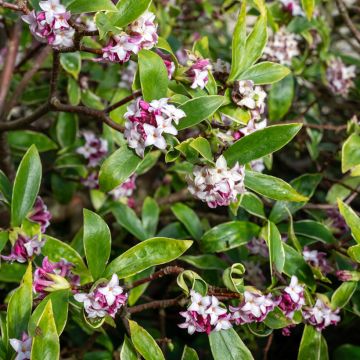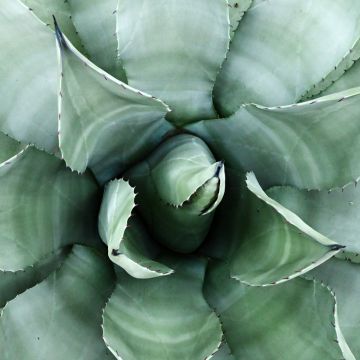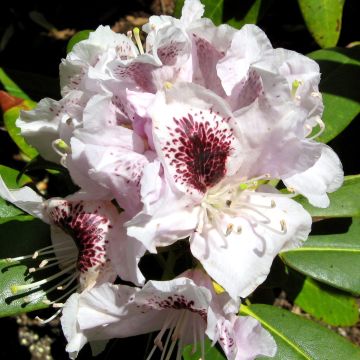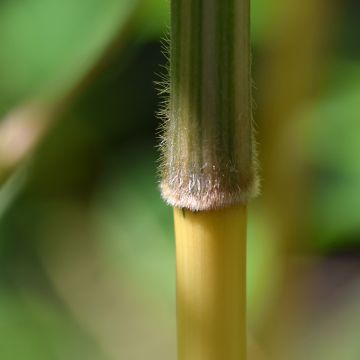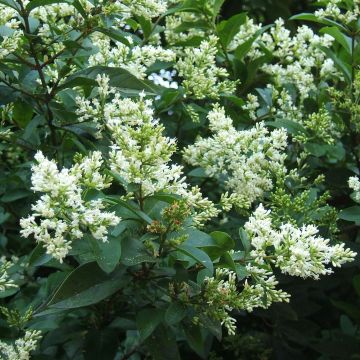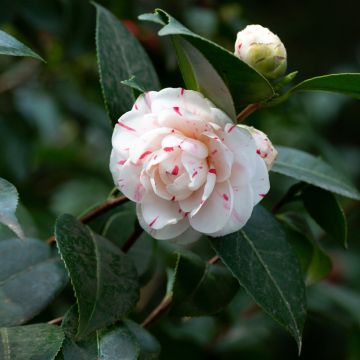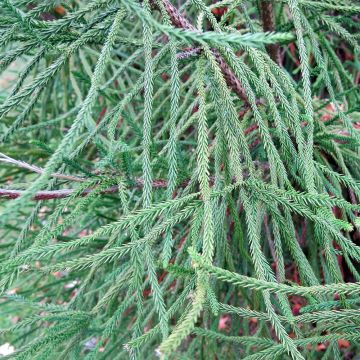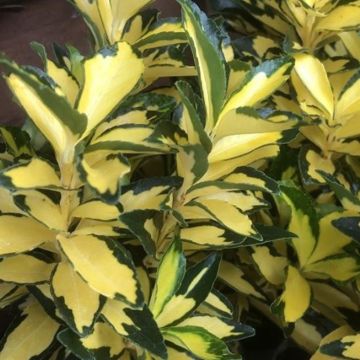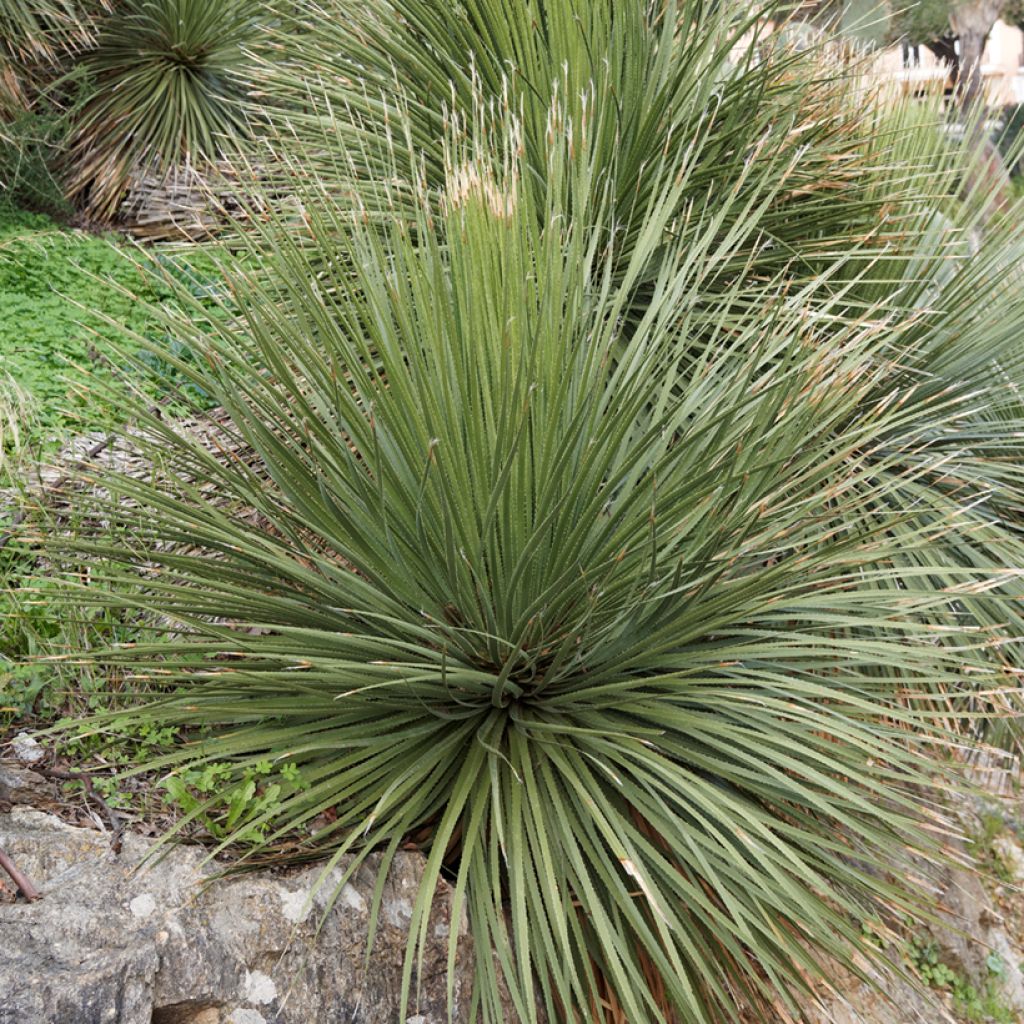

Dasylirion glaucophyllum - Sotol
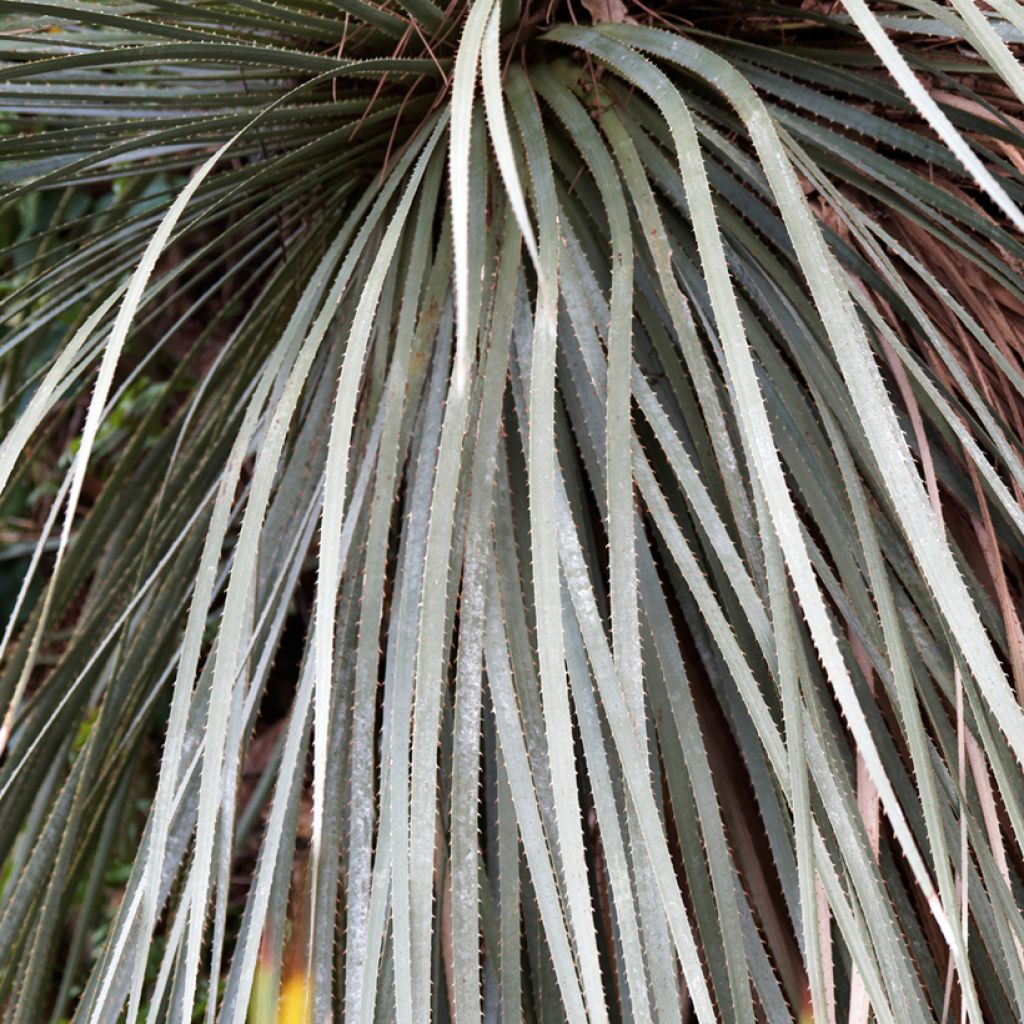

Dasylirion glaucophyllum - Sotol
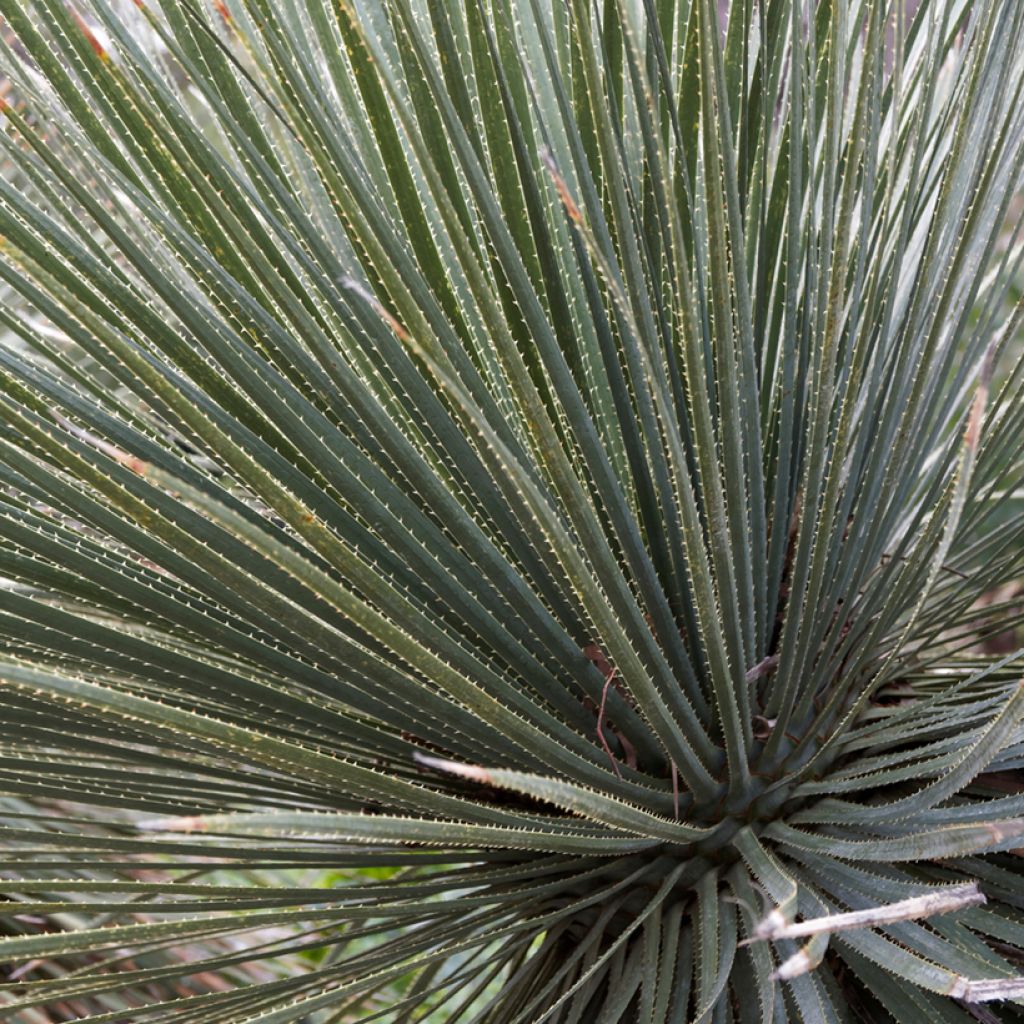

Dasylirion glaucophyllum - Sotol
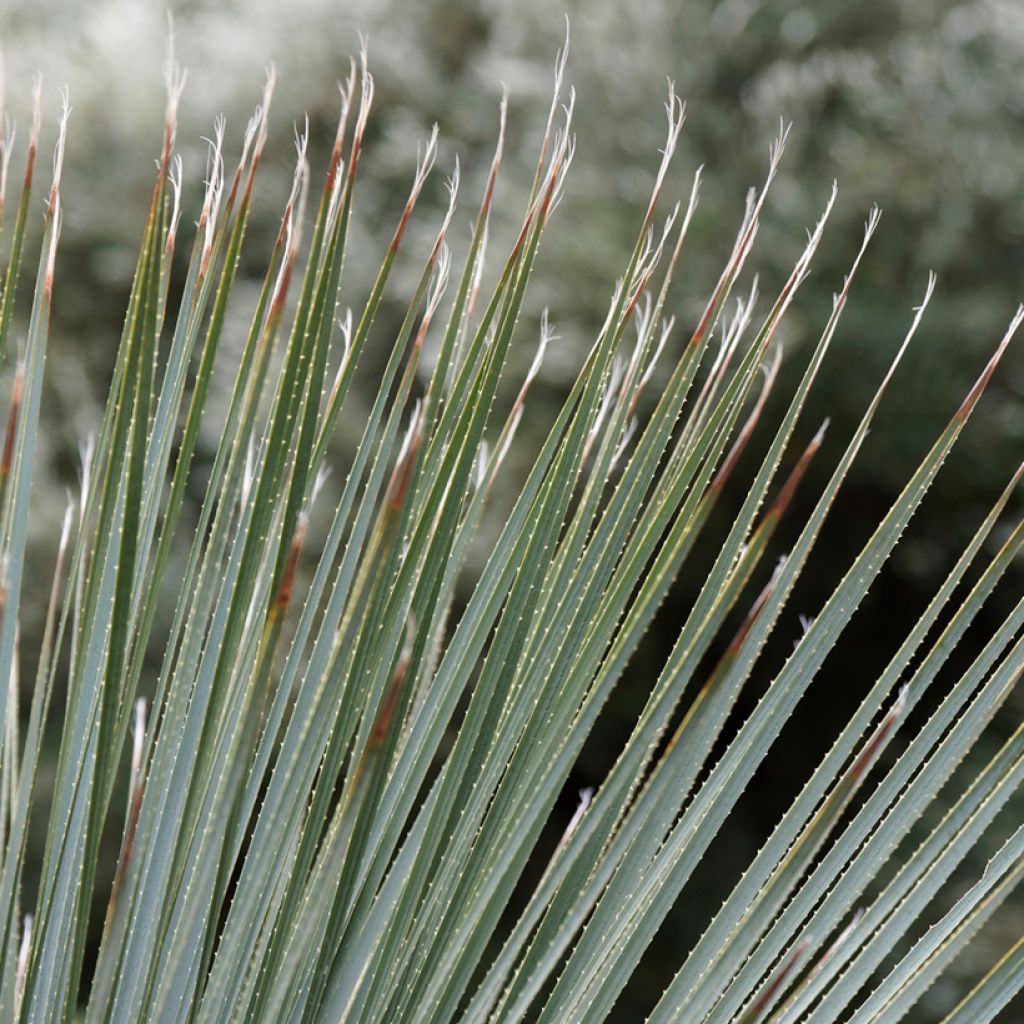

Dasylirion glaucophyllum - Sotol
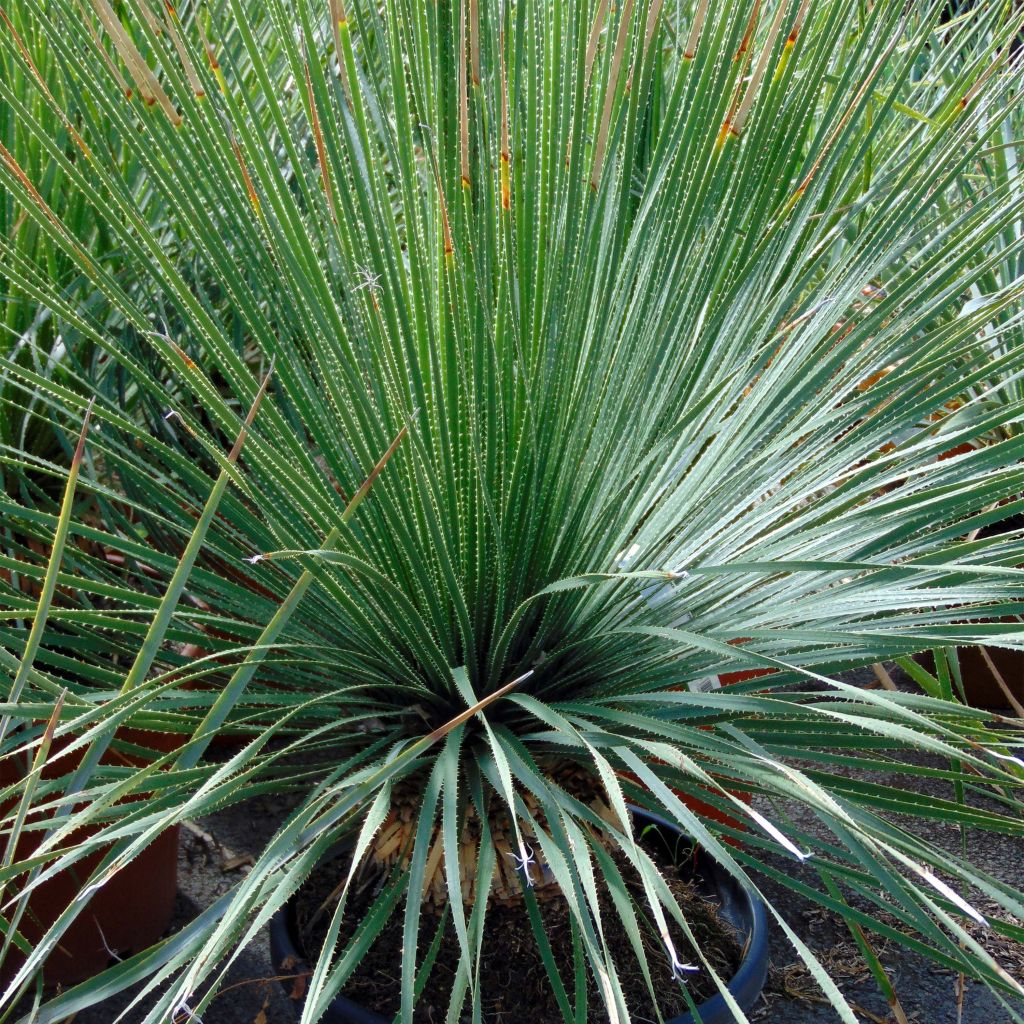

Dasylirion glaucophyllum - Dasylire à feuilles glauques.
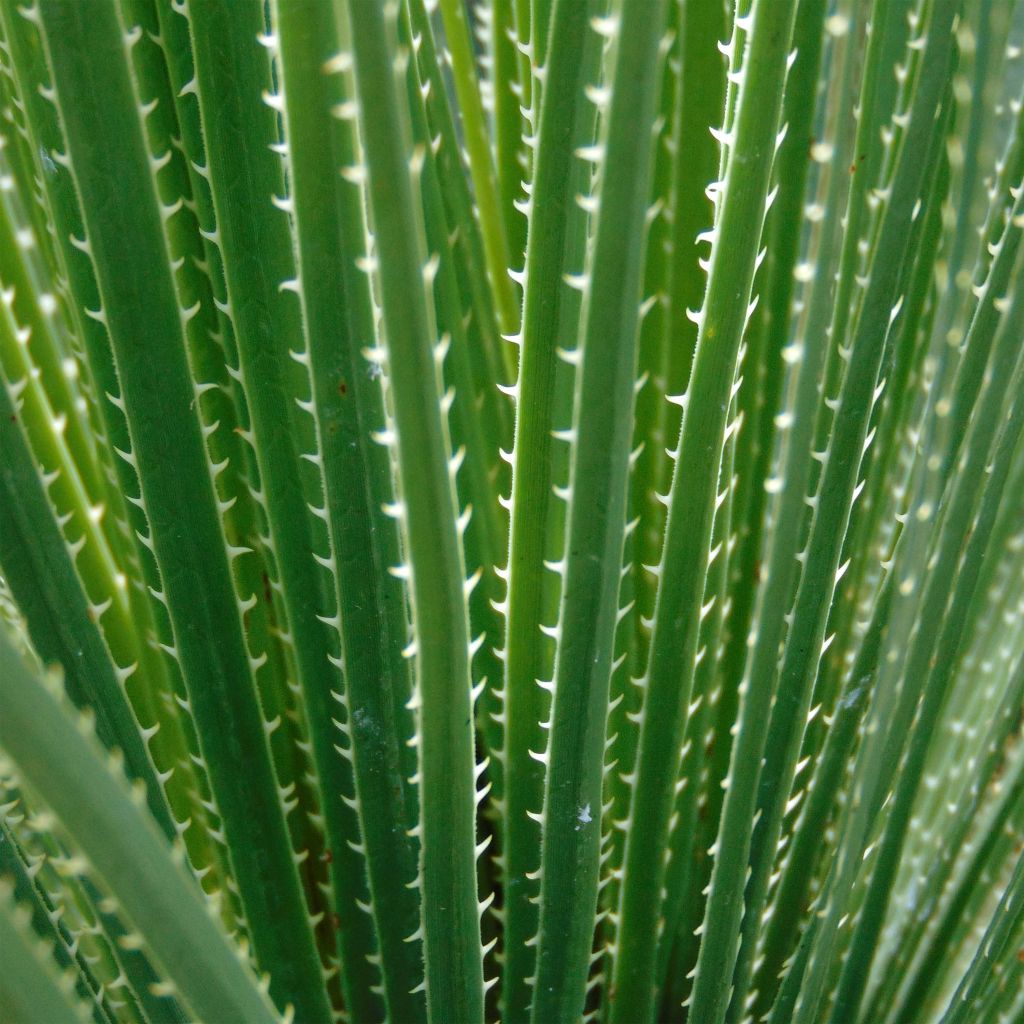

Dasylirion glaucophyllum - Dasylire à feuilles glauques.
Dasylirion glaucophyllum - Sotol
Dasylirion glaucophyllum
Sotol
Special offer!
Receive a €20 voucher for any order over €90 (excluding delivery costs, credit notes, and plastic-free options)!
1- Add your favorite plants to your cart.
2- Once you have reached €90, confirm your order (you can even choose the delivery date!).
3- As soon as your order is shipped, you will receive an email containing your voucher code, valid for 3 months (90 days).
Your voucher is unique and can only be used once, for any order with a minimum value of €20, excluding delivery costs.
Can be combined with other current offers, non-divisible and non-refundable.
Home or relay delivery (depending on size and destination)
Schedule delivery date,
and select date in basket
This plant carries a 24 months recovery warranty
More information
We guarantee the quality of our plants for a full growing cycle, and will replace at our expense any plant that fails to recover under normal climatic and planting conditions.
Would this plant suit my garden?
Set up your Plantfit profile →
Description
Dasylirion glaucophyllum is a persistent tree-like plant that is quite spectacular, related to yuccas and agaves. Its remarkably architectural silhouette, the way light plays through its spherical crown bristling with thin, long, very stiff leaves bordered with white spines, truly impacts a mineral, dry garden, or even the terrace or patio when placed in a jar. This fascinating plant creature bears at the top of a short trunk a kind of giant sea urchin of a beautiful glaucous green colour, a little greener in the centre. Mature specimens flower in a spectacular way, in the form of a huge floral spike that can exceed 4m (13 ft 1 in) in height. It is an easy plant to grow in arid, poor, even limestone soil. Its hardiness depends mainly on soil drainage.
Native to rocky hills and mountainous areas in northern Mexico, Arizona, and Texas, the Dasylirion glaucophyllum is able to withstand temperatures of around -8°C/-10°C (14 °F) in well-drained soil in our French gardens subject to winter rains, even more in dry soil, and tolerates long periods of summer drought. It is a rhizomatous plant belonging to the agave family, slow-growing in dry soil, faster in moist soil, reaching a height of 2m (6 ft 7 in) outside of flowering. When young, the Dasylirion forms a hairy, very dense ball. After many years, it can form a trunk up to 50cm (19.7 in) in height. This trunk bears a large spherical crown, 1.20m (3 ft 11 in) to 1.80m (5 ft 11 in) wide, composed of several hundred radiating leaves, 60cm (23.6 in) to 90cm (35.4 in) long and 2.5cm (1 in) wide, stiff. They are bordered with white, curved spines, among which are arranged numerous tiny spines. The leaves are leathery, glaucous green, folded at their ends into a kind of small button. Flowering occurs after 10 to 15 years of cultivation, in summer. A slender upright floral spike emerges from the centre of the rosette, among the leaves. The small yellowish flowers are densely packed along the slender spike and remain on the plant for a long time, often until winter. Male plants are distinct from female plants. When watered during the summer, this Dasylirion shows spectacular growth. Careful consideration should be given to the location of this plant and it should no longer be disturbed: its fragile root system does not like to be disturbed at all and does not tolerate transplantation very well.
Dasylirion glaucophyllum requires a lot of sun and very well-drained soil, even poor and dry soil but does not tolerate waterlogged soils in winter. It is perfect on a large dry slope, at the top of a large exotic or contemporary rockery, or even near a swimming pool, if the slightly elevated soil is well prepared to accommodate it. This large plant will simply be magnificent when planted on its own, accompanied by a carpet of cistus, Cerastostigma plumbaginoides, Delosperma, or even a short grass meadow called Zoyzia tenuifolia, the Mascarene grass. It can also be paired with Yucca rigida, Nolina, agaves, prickly pears that are quite hardy (Cleistocactus strausii, Cylindropuntia imbricata), and equally spectacular and frugal shrubby aloes. It is well adapted to container cultivation, which allows it to be protected from cold and humidity in winter.
Report an error about the product description
Dasylirion glaucophyllum - Sotol in pictures
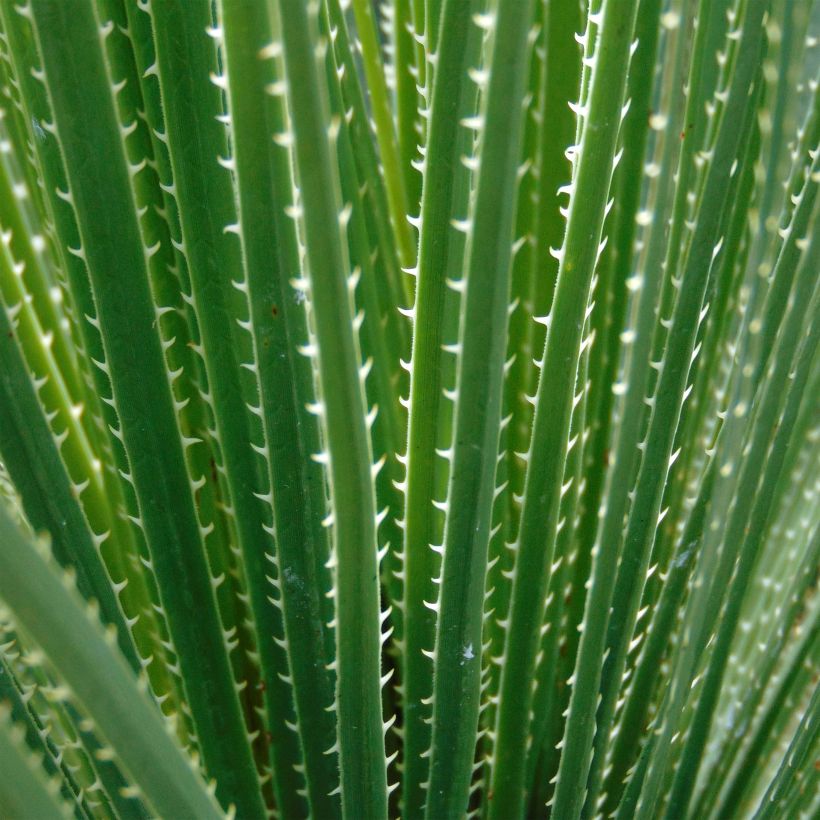

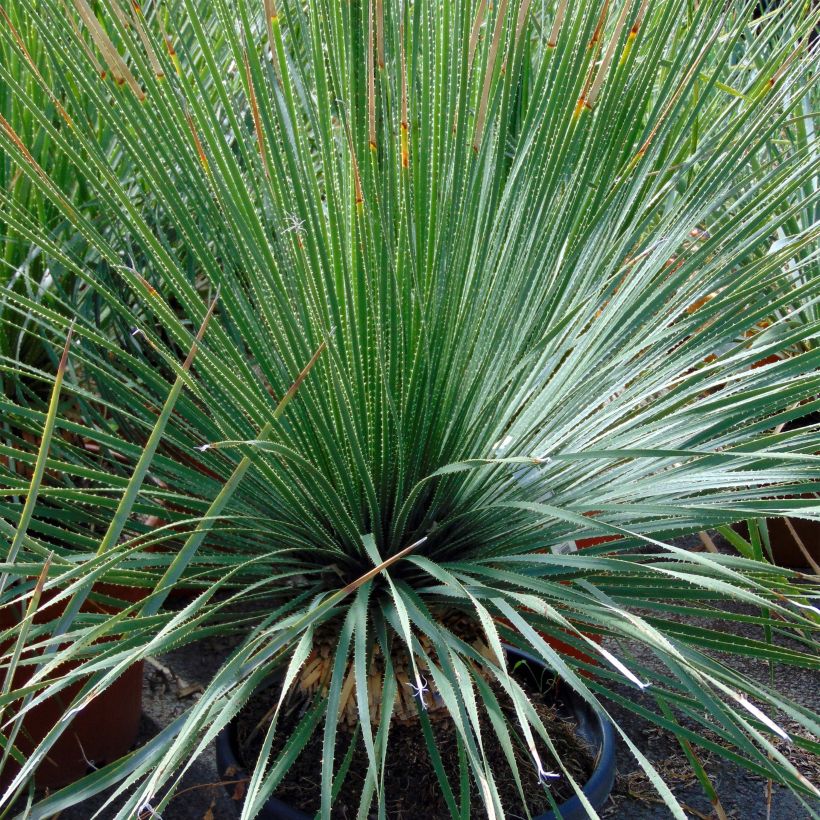

Plant habit
Flowering
Foliage
Botanical data
Dasylirion
glaucophyllum
Agavaceae (Asparagaceae)
Sotol
North America
Planting and care
If you want to plant a Dasylirion glaucophyllum, it's best to do it in the spring in a sunny and sheltered spot. If your garden is in a borderline hardiness zone, plant it in a location with a lot of sun. A mature specimen of this plant can withstand brief frosts of around -8/-10°C (17.6/14°F) in ordinary soil and up to -15°C (5°F) in well-drained soil that remains dry in winter. The plant's growth is slow but can be boosted by giving it generous, spaced watering in the summer and providing fertile soil. If you live in a mild climate, autumn planting is preferable, especially in a hot and dry area during the summer.
When transplanting this plant, taking precautions is essential to avoid damaging the root ball. Make sure to remove it with care, as the roots can be delicate. If the roots are damaged during transplantation, the plant may die. This species doesn't do well in heavy and clayey soils and is sensitive to humidity, especially when combined with cold. Therefore, it's best to plant it in a well-drained soil. Ideal locations include large rockeries, slopes, raised beds with gravel and sand-enriched soil, or rocky embankments. The plant is not picky about soil pH and can tolerate poor soil. However, growth will be slightly faster in somewhat fertile soil.
During the first two years, monitoring the watering is crucial, especially during hot and dry periods. Faded stems should be removed regularly.
If your dasylirion is not flowering, it is probably too young or has only been planted in your garden for 3 or 4 years. This plant takes time to establish itself and only flowers after 10 to 15 years, mainly in warmer areas. Depending on the sunlight and climate, it will flower every year or two or three years. If the plant benefits from automated drip irrigation in summer, its growth will be boosted and 5-year-old rosettes will be able to flower.
Multiplication:
By sowing in spring.
Planting period
Intended location
Care
This item has not been reviewed yet - be the first to leave a review about it.
Similar products
Haven't found what you were looking for?
Hardiness is the lowest winter temperature a plant can endure without suffering serious damage or even dying. However, hardiness is affected by location (a sheltered area, such as a patio), protection (winter cover) and soil type (hardiness is improved by well-drained soil).

Photo Sharing Terms & Conditions
In order to encourage gardeners to interact and share their experiences, Promesse de fleurs offers various media enabling content to be uploaded onto its Site - in particular via the ‘Photo sharing’ module.
The User agrees to refrain from:
- Posting any content that is illegal, prejudicial, insulting, racist, inciteful to hatred, revisionist, contrary to public decency, that infringes on privacy or on the privacy rights of third parties, in particular the publicity rights of persons and goods, intellectual property rights, or the right to privacy.
- Submitting content on behalf of a third party;
- Impersonate the identity of a third party and/or publish any personal information about a third party;
In general, the User undertakes to refrain from any unethical behaviour.
All Content (in particular text, comments, files, images, photos, videos, creative works, etc.), which may be subject to property or intellectual property rights, image or other private rights, shall remain the property of the User, subject to the limited rights granted by the terms of the licence granted by Promesse de fleurs as stated below. Users are at liberty to publish or not to publish such Content on the Site, notably via the ‘Photo Sharing’ facility, and accept that this Content shall be made public and freely accessible, notably on the Internet.
Users further acknowledge, undertake to have ,and guarantee that they hold all necessary rights and permissions to publish such material on the Site, in particular with regard to the legislation in force pertaining to any privacy, property, intellectual property, image, or contractual rights, or rights of any other nature. By publishing such Content on the Site, Users acknowledge accepting full liability as publishers of the Content within the meaning of the law, and grant Promesse de fleurs, free of charge, an inclusive, worldwide licence for the said Content for the entire duration of its publication, including all reproduction, representation, up/downloading, displaying, performing, transmission, and storage rights.
Users also grant permission for their name to be linked to the Content and accept that this link may not always be made available.
By engaging in posting material, Users consent to their Content becoming automatically accessible on the Internet, in particular on other sites and/or blogs and/or web pages of the Promesse de fleurs site, including in particular social pages and the Promesse de fleurs catalogue.
Users may secure the removal of entrusted content free of charge by issuing a simple request via our contact form.
The flowering period indicated on our website applies to countries and regions located in USDA zone 8 (France, the United Kingdom, Ireland, the Netherlands, etc.)
It will vary according to where you live:
- In zones 9 to 10 (Italy, Spain, Greece, etc.), flowering will occur about 2 to 4 weeks earlier.
- In zones 6 to 7 (Germany, Poland, Slovenia, and lower mountainous regions), flowering will be delayed by 2 to 3 weeks.
- In zone 5 (Central Europe, Scandinavia), blooming will be delayed by 3 to 5 weeks.
In temperate climates, pruning of spring-flowering shrubs (forsythia, spireas, etc.) should be done just after flowering.
Pruning of summer-flowering shrubs (Indian Lilac, Perovskia, etc.) can be done in winter or spring.
In cold regions as well as with frost-sensitive plants, avoid pruning too early when severe frosts may still occur.
The planting period indicated on our website applies to countries and regions located in USDA zone 8 (France, United Kingdom, Ireland, Netherlands).
It will vary according to where you live:
- In Mediterranean zones (Marseille, Madrid, Milan, etc.), autumn and winter are the best planting periods.
- In continental zones (Strasbourg, Munich, Vienna, etc.), delay planting by 2 to 3 weeks in spring and bring it forward by 2 to 4 weeks in autumn.
- In mountainous regions (the Alps, Pyrenees, Carpathians, etc.), it is best to plant in late spring (May-June) or late summer (August-September).
The harvesting period indicated on our website applies to countries and regions in USDA zone 8 (France, England, Ireland, the Netherlands).
In colder areas (Scandinavia, Poland, Austria...) fruit and vegetable harvests are likely to be delayed by 3-4 weeks.
In warmer areas (Italy, Spain, Greece, etc.), harvesting will probably take place earlier, depending on weather conditions.
The sowing periods indicated on our website apply to countries and regions within USDA Zone 8 (France, UK, Ireland, Netherlands).
In colder areas (Scandinavia, Poland, Austria...), delay any outdoor sowing by 3-4 weeks, or sow under glass.
In warmer climes (Italy, Spain, Greece, etc.), bring outdoor sowing forward by a few weeks.































